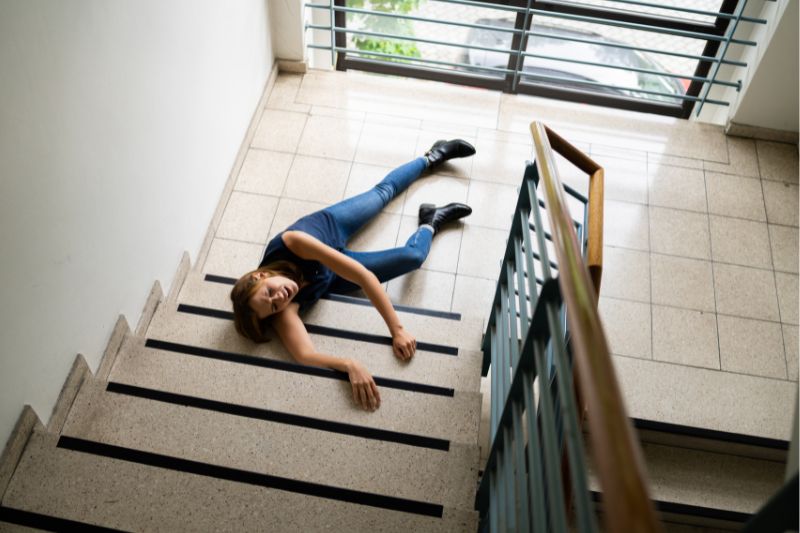Premises Liability
Since 2014
Our Guarantee
No recovery, no fee. We don’t get paid unless you get paid, guaranteed!
Landowners & Businesses are Responsible for
Keeping Their Property Safe & Hazard-Free
However, not all property owners take the time needed to ensure that visitors don’t need to worry about injuring themselves on an unexpected danger. When you or someone you love is seriously injured through a property owner’s negligence, you may be able to fight for the compensation you need to cover any damages or medical bills you incurred by filing a lawsuit.
What are Common Hazards?
Anything from a loose cable to an unfilled hole could be considered a hazard in a premises liability case. Some of the most common hazards to look out for include:
- Unmarked wet floors
- Potholes
- Poor lighting
- Open wells
- Open drainage ditches
- Missing or broken railings
- Loose roofing materials
- Inadequate security
- Icy pavement or sidewalks
- Dead trees or branches
- Broken ladders or staircases
In order to file a file a premises liability lawsuit, you need to be able to prove a few things including that you didn’t enter the property illegally and that the property owner reasonably could have known about the hazard before you were injured. Some temporary hazards like a liquid spill can become more complicated – how long was the spill left uncleaned, and is it a recurring issue in that area? Premises liability law can be complicated, but the attorneys at NPN Law can help you build a case that will put you in the best position possible to secure the compensation you deserve.
Everybody falls sometimes, but there are cases when tripping and falling is not the result of clumsiness. Slip and fall claims are a type of premises liability lawsuit that accuses a property owner of negligently maintaining their premises. Poor property maintenance that results in dangerous conditions can create a hazard for anyone who walks by.
Examples of Slip, Trip & Fall Lawsuits
Any number of property hazards can constitute a slip & fall claim. Below are some examples of some common ones:
- Defective Staircase – There are regulations for how staircases must be built and maintained. If the staircase is defective or missing any of the required safety elements and someone is injured because of that negligence, an injury claim can be filed.
- Inadequate Lighting – Like staircases, there are regulations for what type of lighting should be used in public buildings and areas. Inadequate lighting often results in falls and subsequent injury lawsuits.
- Uneven Surfaces – Cracked pavement, potholes, and other types of uneven surfaces present a walking hazard. When the entity or individual responsible for the walking surface fails to repair the hazard or warn passersby, this can be grounds for an injury claim.
- Wet Surfaces – Spills, leaks, and adverse weather conditions can create wet or even icy walking surfaces. Like uneven surfaces, wet walking surfaces that are not fixed or cautioned against can be grounds for an injury claim.
What to do If You are Injured on Someone Else’s Premises
- Document the dangerous condition by taking photographs.
- Notify the owner of the premises of the dangerous condition.
- Do not give a written or recorded statement to the property owner.
- Contact NPN Law!
Hear From Our Recent Clients
Slum
Housing
No recovery, no fee. We don’t get paid unless you get paid, guaranteed!
Mold
Exposure
If your exposure to mold is the result of negligence or recklessness on the part of a landlord, employer or anyone else, you may be able to pursue an injury claim
Asbestos
Many times asbestos exposure comes from the workplace or from living in slum conditions for many years, get a free consultation today.
Lead
Poisoning
We have taken on landlords, management companies, public housing authorities, government agencies, and others for lead poisoning.
Uninhabitable Living Conditions
California law requires that landlords provide renters with a place to live that is safe and secure
Health & Safety Code Violations
You may have a claim against your landlord for collecting rent while government code violations persist.
Unpermitted Units
Converted garages, converted closets, unpermitted building additions.

